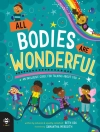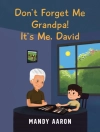This book brings together prominent investigators to provide a comprehensive guide to doing life course research, including an “inside view” of how they designed and carried out influential longitudinal studies. Using vivid examples, the contributors trace the connections between early and later experience and reveal how researchers and graduate students can discover these links in their own research. Well-organized chapters describe the best and newest ways to:
*Use surveys, life records, ethnography, and data archives to collect different types of data over years or even decades.
*Apply innovative statistical methods to measure dynamic processes that result in improvement, decline, or reversibility in economic fortune, stress, health, and criminality.
*Explore the micro- and macro-level explanatory factors that shape individual trajectories, including genetic and environmental interactions, personal life history, interpersonal ties, and sociocultural institutions.
Зміст
1. Life Course Studies: An Evolving Field, Glen H. Elder, Jr., and Janet Z. Giele
Part I. Methods of Data Collection
2. The Wisconsin Longitudinal Study: Designing a Study of the Life Course, Robert M. Hauser
3. Collecting and Interpreting Life Records, Dennis P. Hogan and Carrie E. Spearin
4. Longitudinal Ethnography: Uncovering Domestic Abuse in Women’s Lives, Linda M. Burton, Diane Purvin, and Raymond Garrett-Peters
5. Linking Research Questions to Data Archives, Glen H. Elder, Jr., and Miles G. Taylor
Part II. Measuring Life Course Dynamics
6. Cumulative Processes in the Life Course, Angela M. O’Rand
7. Life Transitions and Daily Stress Processes, David M. Almeida and Jen D. Wong
8. Conceptualizing and Measuring Trajectories, Linda K. George
9. Group-Based Trajectories in Life Course Criminology, Elaine Eggleston Doherty, John H. Laub, and Robert J. Sampson
Part III. Investigating Explanatory Factors
10. Genetics and Behavior in the Life Course: A Promising Frontier, Michael J. Shanahan and Jason D. Boardman
11. Life Stories to Understand Diversity: Variations by Class, Race, and Gender, Janet Z. Giele
12. Social Convoys: Studying Linked Lives in Time, Context, and Motion, Phyllis Moen and Elaine Hernandez
13. Comparative Life Course Research: A Cross-National and Longitudinal Perspective, Hans-Peter Blossfeld
Про автора
Glen H. Elder, Jr., Ph D, is Howard W. Odum Distinguished Research Professor of Sociology at the University of North Carolina at Chapel Hill. He is a leading figure in the development of life course theory and methods through longitudinal studies of children and adults who were influenced by the hard times of the Great Depression and World War II. Other major longitudinal projects include a multigenerational study of families and children under economic stress in the Midwest, and an inner-city longitudinal study of white and minority young people in Philadelphia. His books include Children of the Great Depression: Social Change in Life Experience. He is a member of the American Academy of Arts and Sciences and has served as vice president of the American Sociological Association as well as president of the Society for Research on Child Development.
Janet Z. Giele is Professor Emerita of Sociology, Social Policy, and Women’s Studies at the Heller School for Social Policy and Management of Brandeis University. Her research focuses on the changing life course of women and the emergence of American family policy. Her work has been supported by the Ford and Rockefeller Foundations, German Marshall Fund, Lilly Endowment, National Institute on Aging, and National Science Foundation. She is the author, editor, or coeditor of eight previous books.












